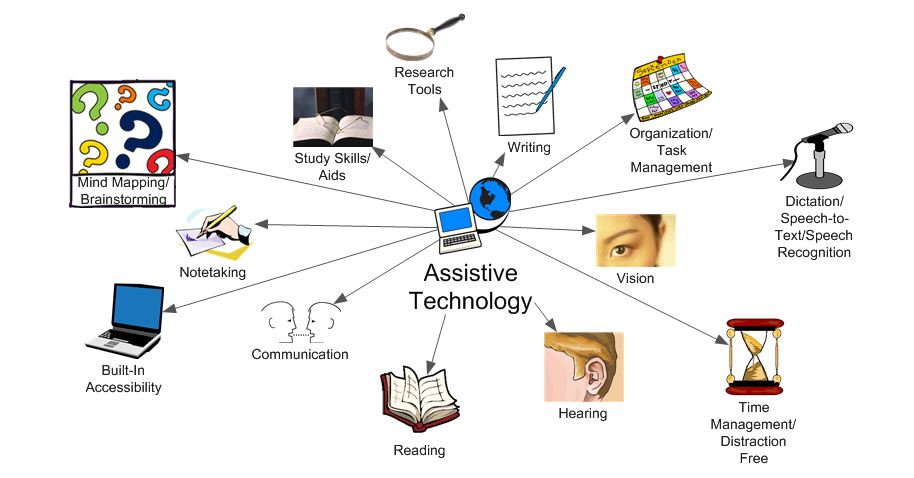Associates in Information Technology Jobs: Your Path to a Tech Career
Associates in information technology jobs offer a gateway to a dynamic and ever-evolving field. With an Associate’s degree in IT, you can gain the essential skills and knowledge to launch […]

Associates in information technology jobs offer a gateway to a dynamic and ever-evolving field. With an Associate’s degree in IT, you can gain the essential skills and knowledge to launch a successful career in a variety of roles, from cybersecurity to software development. This degree provides a solid foundation for entry-level positions and serves as a stepping stone for further education and career advancement.
The curriculum of an Associate’s degree in IT typically covers core concepts like programming languages, operating systems, networking, and database management. You’ll learn to troubleshoot technical issues, design and implement IT solutions, and stay abreast of emerging technologies. Many programs also offer specialized tracks in areas like cybersecurity, network administration, or web development, allowing you to tailor your education to your interests and career aspirations.
Overview of Associates in Information Technology
An Associate’s degree in Information Technology (IT) provides a solid foundation for a career in the rapidly growing tech industry. It equips individuals with the necessary skills and knowledge to enter various IT roles and offers a pathway to further education and career advancement.
Curriculum
The curriculum for an Associate’s degree in IT typically covers a broad range of topics, including:
- Computer Hardware and Software: Understanding the components of computers, operating systems, and software applications.
- Networking Fundamentals: Learning about network topologies, protocols, and security measures.
- Programming and Scripting: Acquiring proficiency in programming languages such as Python, Java, or C++ to develop software applications.
- Database Management: Understanding database concepts, design, and administration tools.
- Cybersecurity Basics: Learning about common threats, vulnerabilities, and security best practices.
- Web Development: Gaining knowledge of web technologies such as HTML, CSS, and JavaScript to create websites and web applications.
Specializations
An Associate’s degree in IT often allows students to specialize in a particular area of interest. Common specializations include:
- Cybersecurity: Focuses on protecting computer systems and networks from cyberattacks and data breaches.
- Network Administration: Involves managing and maintaining computer networks, ensuring optimal performance and security.
- Software Development: Emphasizes programming skills and software engineering principles to create applications.
- Database Administration: Focuses on managing and maintaining databases, ensuring data integrity and security.
- Web Development: Specializes in creating and maintaining websites and web applications.
Career Paths and Advancement Opportunities
Graduates with an Associate’s degree in IT can pursue various entry-level roles, such as:
- Help Desk Technician: Providing technical support to users, troubleshooting computer problems, and resolving software issues.
- Network Technician: Installing, configuring, and maintaining computer networks, ensuring connectivity and security.
- Systems Administrator: Managing and maintaining computer systems, ensuring their stability and performance.
- Web Developer: Creating and maintaining websites and web applications, ensuring functionality and user experience.
- Junior Software Developer: Writing and testing code for software applications, contributing to software development projects.
With experience and further education, individuals with an Associate’s degree can advance to more senior roles, such as:
- Network Administrator: Responsible for the overall management and security of a company’s network infrastructure.
- Systems Analyst: Analyzing business requirements and designing IT solutions to meet those needs.
- Software Engineer: Developing complex software applications, leading software development teams.
- Cybersecurity Analyst: Identifying and mitigating cybersecurity threats, protecting sensitive data and systems.
- Database Administrator: Managing and maintaining large databases, ensuring data integrity and security.
In-Demand Job Roles for Associates in Information Technology

An Associate’s degree in Information Technology can open doors to a variety of in-demand roles in the technology industry. These roles often serve as entry-level positions, providing a solid foundation for career advancement.
IT Support Specialist
IT support specialists are the first line of defense for businesses and organizations experiencing technical difficulties. They troubleshoot computer hardware and software issues, provide technical assistance to users, and ensure the smooth operation of IT systems.
- Required Skills: Strong understanding of computer hardware and software, troubleshooting skills, excellent communication and problem-solving skills, ability to work independently and as part of a team.
- Responsibilities: Installing and configuring software, troubleshooting network connectivity issues, resolving user account problems, providing technical support over the phone, email, or in person, maintaining IT equipment and inventory.
- Average Salary Range: $40,000 – $60,000 per year.
- Career Growth Potential: IT support specialists can progress to roles such as Network Administrator, Systems Administrator, or IT Project Manager.
Help Desk Analyst
Help desk analysts provide technical support to users over the phone, email, or chat. They handle a wide range of issues, from password resets to software installation problems.
- Required Skills: Excellent communication and interpersonal skills, ability to explain technical concepts in a clear and concise manner, strong problem-solving and troubleshooting skills, knowledge of common software applications and operating systems.
- Responsibilities: Answering user inquiries, resolving technical issues, documenting problems and solutions, escalating complex issues to higher-level support staff, providing training and support to users.
- Average Salary Range: $35,000 – $55,000 per year.
- Career Growth Potential: Help desk analysts can advance to roles such as IT Support Specialist, Technical Support Engineer, or Systems Administrator.
Network Technician
Network technicians are responsible for the installation, maintenance, and troubleshooting of computer networks. They ensure the smooth operation of network infrastructure, including routers, switches, and cabling.
- Required Skills: Strong understanding of networking principles, experience with network devices and protocols, troubleshooting skills, ability to work independently and as part of a team.
- Responsibilities: Installing and configuring network devices, troubleshooting network connectivity issues, monitoring network performance, maintaining network security, providing technical support to users.
- Average Salary Range: $45,000 – $70,000 per year.
- Career Growth Potential: Network technicians can progress to roles such as Network Administrator, Network Engineer, or Security Analyst.
Web Developer
Web developers are responsible for designing, developing, and maintaining websites and web applications. They use programming languages and web development tools to create interactive and user-friendly online experiences.
- Required Skills: Proficiency in programming languages such as HTML, CSS, JavaScript, and PHP, understanding of web design principles, ability to work with databases and web servers, knowledge of web security best practices.
- Responsibilities: Developing website layouts and functionalities, creating web applications, testing and debugging code, optimizing websites for performance and search engines, maintaining and updating websites.
- Average Salary Range: $50,000 – $80,000 per year.
- Career Growth Potential: Web developers can advance to roles such as Senior Web Developer, Front-End Developer, Back-End Developer, or Full-Stack Developer.
Database Administrator
Database administrators are responsible for the design, implementation, and maintenance of databases. They ensure the integrity and security of data, manage user access, and optimize database performance.
- Required Skills: Strong understanding of database concepts, experience with database management systems (DBMS) such as MySQL, Oracle, or SQL Server, knowledge of data security and backup procedures, ability to write and execute SQL queries.
- Responsibilities: Designing and implementing database schemas, managing database security and access controls, monitoring database performance, troubleshooting database issues, backing up and restoring database data, providing technical support to users.
- Average Salary Range: $60,000 – $90,000 per year.
- Career Growth Potential: Database administrators can advance to roles such as Senior Database Administrator, Data Architect, or Data Analyst.
Skills and Knowledge Required for Success

To thrive in the dynamic world of information technology, an Associate’s degree provides a solid foundation, but it’s the specific skills and knowledge you acquire that truly propel your career forward. This section delves into the technical and soft skills essential for success, as well as the value of certifications and professional development opportunities.
Essential Technical Skills
Technical proficiency is the cornerstone of any IT career. An Associate’s degree in IT equips you with a strong base in programming languages, operating systems, and network technologies. This foundation allows you to confidently tackle real-world IT challenges.
| Category | Skills | Examples |
|---|---|---|
| Programming Languages | Python, Java, C++, JavaScript, SQL | Python is widely used for data analysis and web development, while Java is popular for enterprise applications. |
| Operating Systems | Windows, Linux, macOS | Understanding the intricacies of these operating systems is crucial for troubleshooting and system administration. |
| Network Technologies | TCP/IP, Ethernet, Wi-Fi, VPNs | Familiarity with network protocols and concepts enables you to design, implement, and manage secure and efficient network infrastructure. |
The Importance of Soft Skills
While technical expertise is paramount, soft skills are equally vital for success in the IT field. These skills enhance your ability to collaborate, communicate effectively, and navigate complex projects.
- Communication: Effective communication is essential for collaborating with colleagues, explaining technical concepts to non-technical stakeholders, and providing clear and concise documentation.
- Problem-Solving: IT professionals are constantly faced with challenges. Strong analytical and problem-solving skills are essential for identifying issues, devising solutions, and implementing them effectively.
- Teamwork: Most IT projects involve collaboration. Being able to work effectively as part of a team, contribute your expertise, and respect the contributions of others is crucial for project success.
Certifications and Professional Development
In the rapidly evolving IT landscape, continuous learning is essential. Certifications and professional development opportunities demonstrate your commitment to staying up-to-date with the latest technologies and trends.
- Certifications: Industry-recognized certifications, such as CompTIA A+, Cisco CCNA, or Microsoft Azure Fundamentals, validate your knowledge and skills, making you a more attractive candidate to potential employers. They also enhance your credibility and demonstrate your commitment to professional growth.
- Professional Development: Attending workshops, conferences, and online courses provides opportunities to expand your knowledge base, network with industry professionals, and stay abreast of emerging technologies. These opportunities also help you develop new skills and gain insights into industry best practices.
Finding and Applying for IT Jobs

Landing your first IT job after earning your associate’s degree can be exciting and challenging. You’ve gained valuable skills and knowledge, but now it’s time to translate that into a successful career. This section will guide you through the process of finding and applying for IT positions, from identifying relevant job boards to crafting a compelling resume and cover letter, and preparing for job interviews.
Popular Job Boards and Online Resources
Finding the right IT job starts with knowing where to look. Many online resources and job boards cater specifically to the IT industry. These platforms offer a wide range of opportunities, from entry-level positions to more senior roles.
- Indeed: One of the most popular job search engines, Indeed aggregates job postings from various sources, including company websites and job boards. It allows you to filter by location, job title, and s, making it easy to find relevant IT positions.
- LinkedIn: A professional networking platform, LinkedIn is an excellent resource for finding IT jobs. You can connect with professionals in your field, search for open positions, and receive job recommendations based on your profile.
- Dice: Specifically focused on technology jobs, Dice features a vast database of IT positions across various industries. It offers advanced search filters, career advice, and salary information.
- Glassdoor: Known for its company reviews and salary data, Glassdoor also lists job openings. You can find information about company culture, interview processes, and compensation packages, making it a valuable resource for researching potential employers.
- Monster: Another popular job search engine, Monster offers a wide range of job postings, career advice, and resume-building tools.
- CareerBuilder: Similar to Monster, CareerBuilder aggregates job postings from various sources, providing a comprehensive overview of available IT positions.
- Stack Overflow Jobs: A specialized job board for developers, Stack Overflow Jobs offers a platform for finding and applying to software development roles. It features a focus on technical skills and experience.
- GitHub Jobs: For those seeking roles in software development and related fields, GitHub Jobs is a dedicated job board for finding open positions at companies that use GitHub. It allows you to search by location, skills, and company size.
- Company Websites: Don’t overlook company websites! Many companies post job openings directly on their career pages. This can be a great way to find positions that may not be listed on general job boards.
Creating a Compelling Resume and Cover Letter
Your resume and cover letter are crucial first impressions for potential employers. They should showcase your skills, experience, and enthusiasm for the IT field.
- Tailor your resume: Each resume you submit should be tailored to the specific job you’re applying for. Highlight the skills and experience most relevant to the position description. Use s from the job posting throughout your resume to make it more visible to applicant tracking systems (ATS).
- Quantify your achievements: Instead of simply listing your responsibilities, quantify your achievements whenever possible. For example, instead of saying “Managed a team,” say “Managed a team of five developers, resulting in a 15% increase in productivity.” This demonstrates the impact you’ve made.
- Use a clear and concise format: Keep your resume organized and easy to read. Use bullet points, headings, and white space to break up the text and highlight important information. Avoid using overly fancy fonts or templates that may distract from your content.
- Focus on your skills: Highlight the technical skills you’ve acquired through your associate’s degree and any relevant work experience. This includes programming languages, operating systems, databases, networking concepts, and cybersecurity fundamentals.
- Showcase your projects: If you’ve worked on any personal projects, include them in your resume. This demonstrates your initiative and passion for technology. Be sure to describe the project, your role, and any relevant skills you used.
- Write a compelling cover letter: Your cover letter should explain why you’re interested in the specific job and company. Highlight your relevant skills and experience, and connect them to the requirements of the position. Tailor your letter to each job application, demonstrating your genuine interest and understanding of the company’s needs.
Preparing for Job Interviews
Once you’ve submitted your resume and cover letter, you may be invited for an interview. Preparing thoroughly for job interviews is essential to showcasing your knowledge and abilities.
- Research the company and the role: Before the interview, spend time researching the company’s mission, values, products, and services. Understand the specific responsibilities of the role you’re applying for. This will allow you to ask insightful questions and demonstrate your genuine interest.
- Practice your answers to common interview questions: Prepare for common interview questions such as “Tell me about yourself,” “Why are you interested in this role,” and “What are your strengths and weaknesses.” Practice your answers out loud to ensure you can articulate them clearly and concisely.
- Prepare questions to ask the interviewer: Asking thoughtful questions demonstrates your engagement and interest in the role. Prepare questions about the company culture, the team, the projects you’d be working on, and the opportunities for growth within the organization.
- Dress professionally: Even for virtual interviews, it’s important to dress professionally. This shows respect for the interviewer and demonstrates your commitment to the opportunity.
- Be confident and enthusiastic: Show your passion for technology and your eagerness to learn and grow. Be confident in your abilities, but also be open to feedback and willing to ask questions.
Industry Trends and Future Outlook: Associates In Information Technology Jobs
The IT industry is constantly evolving, driven by emerging technologies and changing business needs. Understanding these trends is crucial for IT professionals, especially those with Associate’s degrees, to stay competitive and adapt to the demands of the modern workplace.
Impact of Emerging Technologies
The rapid pace of technological advancement is transforming the IT landscape. Emerging technologies such as artificial intelligence (AI), cloud computing, blockchain, and the Internet of Things (IoT) are creating new opportunities and challenges for IT professionals.
- AI and Machine Learning (ML): AI and ML are automating tasks, improving decision-making, and creating new applications. This has led to a growing demand for IT professionals with expertise in these areas, including data scientists, machine learning engineers, and AI developers. For example, AI-powered chatbots are revolutionizing customer service, while ML algorithms are optimizing supply chains and improving fraud detection.
- Cloud Computing: Cloud computing has become the standard for businesses of all sizes, offering scalability, flexibility, and cost-effectiveness. This has created a demand for cloud architects, cloud engineers, and cloud security professionals. The adoption of cloud platforms like Amazon Web Services (AWS), Microsoft Azure, and Google Cloud Platform (GCP) has significantly increased the need for skilled professionals in cloud-related roles.
- Blockchain: Blockchain technology is revolutionizing industries like finance, healthcare, and supply chain management. It offers enhanced security, transparency, and efficiency. This has created opportunities for blockchain developers, blockchain engineers, and cryptographers. For example, blockchain is being used to track the movement of goods in supply chains, ensuring their authenticity and provenance.
- Internet of Things (IoT): The IoT connects devices and sensors, enabling data collection and analysis. This has led to a demand for IoT developers, IoT security specialists, and data analysts who can manage and interpret the vast amounts of data generated by connected devices. For instance, smart homes and smart cities are powered by IoT technologies, requiring skilled professionals to manage and secure these systems.
Future Demand for IT Professionals with Associate’s Degrees
While a Bachelor’s degree may be preferred for some advanced roles, Associate’s degrees in IT remain highly valuable in the job market.
- Technical Skills: Associate’s degree programs equip graduates with fundamental technical skills in programming, networking, cybersecurity, and database management, which are in high demand across various industries.
- Entry-Level Positions: Many IT professionals with Associate’s degrees start their careers in entry-level positions, such as help desk technicians, network administrators, and system analysts. These roles provide valuable experience and a stepping stone to more advanced positions.
- Growing Demand: The demand for IT professionals with Associate’s degrees is expected to continue growing as businesses increasingly rely on technology. This is especially true for industries like healthcare, finance, and retail, which are undergoing rapid digital transformation.
Staying Competitive and Adapting to Industry Trends, Associates in information technology jobs
The IT industry is constantly evolving, so it is essential for professionals to stay current with emerging technologies and trends.
- Continuous Learning: IT professionals should engage in continuous learning to stay ahead of the curve. This can be achieved through online courses, certifications, professional development programs, and attending industry events.
- Networking: Networking with other IT professionals can provide valuable insights, job opportunities, and access to new technologies. Attending industry conferences, joining professional organizations, and engaging in online forums are effective ways to build connections.
- Specialization: Specializing in a particular area of IT can make professionals more competitive. For example, focusing on cloud computing, cybersecurity, or data analytics can open up specialized career paths.
- Adaptability: The IT industry is known for its rapid changes, so professionals need to be adaptable and willing to learn new skills. This includes being open to new technologies, methodologies, and industry trends.
Final Review
In today’s digital world, the demand for skilled IT professionals continues to grow. An Associate’s degree in IT can be your springboard to a fulfilling and rewarding career in a field that is constantly innovating and shaping the future. Whether you’re drawn to the challenge of securing networks, developing software, or managing data, an IT associate’s degree can equip you with the skills and knowledge to thrive in this exciting and ever-changing landscape.
Associates in Information Technology jobs often require a strong understanding of technology assessment tools. One such tool is assessment technology Galileo , which can be used to evaluate a candidate’s skills and knowledge in various IT areas. By utilizing these assessment tools, employers can gain valuable insights into the abilities of potential IT associates.




